All Stories
-
 Health & Medicine
Health & MedicineMost women get uterine fibroids. This researcher wants to know why
Biomedical engineer Erika Moore investigates diseases that disproportionately affect women of color.
-
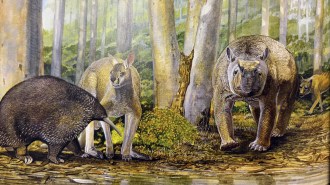 Humans
HumansAn ancient bone recasts how Indigenous Australians treated megafauna
A new look at cuts on a giant kangaroo bone reveal First Peoples as fossil collectors, not hunters who helped drive species extinct, some scientists argue.
- Physics
A tiny, levitated glass sphere behaves like the hottest engine ever made
At an effective temperature of 13 million kelvins, the jiggling glass sphere could help scientists understand physics at the microscale.
-
 Health & Medicine
Health & MedicineCOVID-related smell loss may last years
Using a scratch-and-sniff test, researchers discovered that smell loss after COVID-19 may linger for more than two years.
By Meghan Rosen -
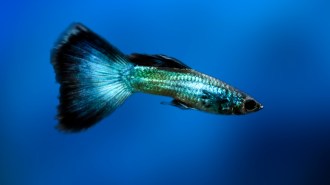 Animals
AnimalsGuppies fall for a classic optical illusion. Doves, usually, do too
Comparing animals’ susceptibility to optical illusions can show how perception evolved.
By Sujata Gupta -
 Health & Medicine
Health & MedicineEven for elite athletes, the body’s metabolism has its limits
While ultramarathoners are capable of huge energy spurts, overall the athletes top out at 2.5 times the metabolic rate needed for basic body functions.
-

Big questions on how food affects our health
Editor in Chief Nancy Shute explores the science behind major questions on food and health — from the addictive potential of ultraprocessed foods to the high-protein diet craze to the drawbacks of keto.
By Nancy Shute -
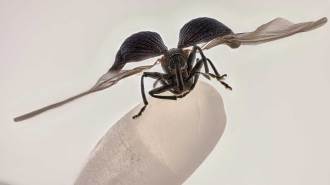 Life
LifeA rice weevil frozen in flight won the 2025 Nikon Small World photo contest
From fluorescent ferns to sprawling neurons, this year’s winning photos reveal the structures and artistry of life seen through a microscope.
By Carly Kay -
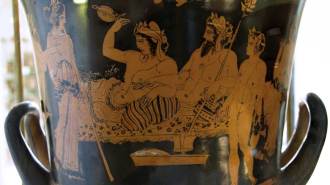 Science & Society
Science & SocietyOur relationship with alcohol is fraught. Ancient customs might inspire a reset
As evidence of alcohol's harms mounts, some people are testing out sobriety. Look to ancient civilizations' ways for a reset, scholars suggest.
By Sujata Gupta -
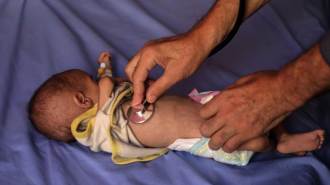 Health & Medicine
Health & MedicineAn estimated 54,600 young children are malnourished in Gaza
A study that screened young children in Gaza for malnutrition found that nearly 16 percent suffered from wasting in August 2025.
-
 Climate
ClimateAs wildfires worsen, science can help communities avoid destruction
Blazes sparked in wild lands are devastating communities worldwide. The only way to protect them, researchers say, is to re-engineer them.
By Nikk Ogasa -
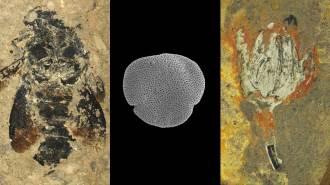 Paleontology
PaleontologyThese ancient bumblebees were found with their pollen source
Insects have long pollinated plants, but evidence of ancient pairing is rare. Fossils now show bees and linden trees goes back 24 million years.